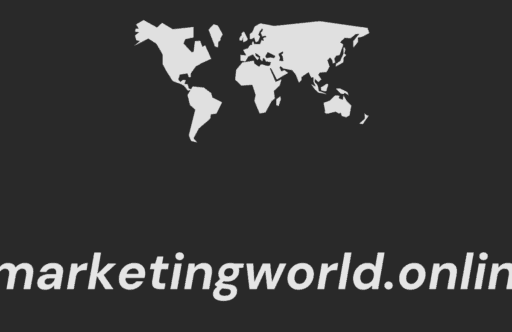Analysis revealed by Science reveals ideological “echo chambers” on social media
Fb (Meta) has remodeled how we get information and data.
In line with self-proclaims by Meta Inc., over two billion customers and counting – or higher profiles, together with in all probability a half of fakes, duplicated, bots, scammers, deads, banned… For positive, Fb is the most important social media community worldwide. Contemplating the common sort of present consumer – a boomer purposeful illiterate simple catch for propaganda machines of any variety – the USA-based community based and nonetheless owned by Mark Zuckerberg vastly impacts election outcomes worldwide.
The brand new anti-Twitter – or higher, anti-X – community, Threads, has been an enormous flop – 100 million customers the primary week after launch, and over 50% misplaced the week after. Two data – regardless of technically they’re not new customers however slightly current customers of one other community, Instagram, that activated the Threads extension.
Contemplating the Metaverse flop, the current introduction of paid verified profiles to offer customers’ help – in any other case completely absent – and paid plans to look at creators’ content material is just not time for Meta. It appears extra of a determined try to empty the drop in promoting income because of poor efficiency amplified after the iOS14 conversion API block for privateness (primarily enterprise) causes.
Past such technical and enterprise sides, a serious query regarding Fb’s rise amongst customers and policymakers: is it dividing us politically?
A significant new examine revealed by Science in July 2023, ‘Uneven ideological segregation in publicity to political information on Fb’, suggests it’s.
A pool of 27 unbiased researchers analyzed Fb information for 208 million U.S. customers in the course of the 2020 election. They examined the total universe of stories tales individuals may see of their feeds. Then they in contrast this to the narrowed collection of tales Fb’s algorithm confirmed them.
Fb contributes overwhelmingly to the ideological segregation and political polarisation of society
The researchers discovered excessive ranges of “ideological segregation” on Fb. Conservatives tended to see information catering to their views. The identical for liberals. This segregation grew stronger as tales moved from potential publicity to precise publicity.
Political polarisation is the divergence of political attitudes away from the middle, in direction of ideological extremes. Most discussions of polarization in political science think about polarisation within the context of political events and democratic techniques of presidency. (Supply: Wikipedia English)
There was additionally hanging asymmetry between left and proper. A large section of conservative information was remoted and consumed solely by right-leaning audiences. No equal bubble existed on the left.
The researchers additionally checked out misinformation – tales flagged as false by Fb’s fact-checkers. Almost all these bogus tales resided within the uniquely conservative bubble.
In different phrases, conservatives on Fb inhabit an alternate media universe to a better extent than liberals. Their feeds promote partisan information – and typically pretend information – extra aggressively.

Prime communities in coexposure networks.
Political polarisation taken to extremes by a cynical algorithm
To know these findings, we have to grasp how information reaches Fb customers:
- The underlying community issues. Who you good friend, observe and be a part of shapes your potential publicity.
- Fb’s algorithm then filters this community based mostly in your pursuits. It elevates sure tales into your precise feed.
- You interact with some tales by reacting, commenting, and sharing. This indicators Fb what you want, driving the algorithm additional.
Two different insights emerged:
- Pages and teams drive segregation greater than buddies. This implies ideology performs a much bigger function in selecting to observe pages/teams versus people.
- Excessive-political curiosity customers see twice as a lot segregation as low-interest customers. They decide extra into partisan echo chambers.
Inform me who you observe, and I’ll let you know who you vote for…ever
Previous analysis utilizing net shopping information discovered restricted “filter bubbles” on-line. However this examine suggests social media permits much more segregation in information consumption.
Searching web sites like “Fox Information” can miss necessary variations within the particular tales customers see. Granular information on information articles – not simply shops – is vital.
The findings additionally underscore the uneven polarization of America’s media ecosystem. Conservative media nurtures a extra cloistered viewers than liberal media. On platforms like Fb, this asymmetry will get amplified algorithmically.
Social media expands our info horizons. However the factions we want to observe can consolidate our prejudices and bias. Fb’s algorithms cater to these biases, probably fueling political tribalism.
Hordes of devotees feast day by day on media lies, regardless of the political celebration, after which share it with their friends, reinforcing its supposed significance. Nonetheless, it’s price reminding that reputation doesn’t suggest validity.
Extremist political events gas the development. For instance, in response to public adverts spending information supplied by Meta Inc, Belgium’s greatest spender in political adverts is the Flemish independentist right-wing celebration, Vlaams Belang (instantly or by its representatives). Tens of millions of taxpayers’ cash are funding political events’ propaganda, in the end fueling the American social community income – skipping native taxation due to its Irish tax haven.
The analysis revealed by Science highlights the necessity for transparency from social media platforms. Clearly, along with Fb, there are different platforms. Nonetheless, Meta platforms are probably the most influential in political polarization, each for the variety of customers concerned and for the consequences of the algorithm that generates the personalised information feed for every consumer And for society to navigate the web’s dangers and rewards thoughtfully. Fb alone received’t repair political divides, however understanding its affect is essential to mitigate it; in any other case, future elections shall be pointless.
The article was additionally revealed on DataDrivenInvestor through Medium.

